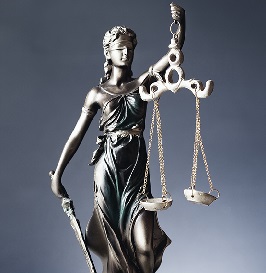daciashafer214
About daciashafer214
The judicial system in the UK play a crucial role in ensuring that justice is delivered fairly, impartially, and efficiently.
Magistrates’ Courts are responsible for handling less serious criminal cases, such as summary offences, civil disputes, and family matters. These courts are the most numerous in the UK, and their administration is often handled at the local level by administrative staff who ensure that hearings are scheduled, documents are processed, and cases are heard in a timely manner.
Court hearings is highly structured, and each party is given an opportunity to present their case, call witnesses, and cross-examine the opposing party’s witnesses. During the trial, the judge will listen to the arguments, evaluate the evidence, and make rulings on any legal issues that arise. In civil cases, the standard of proof is typically ”on the balance of probabilities,” meaning that the claimant must prove that their version of events is more likely to be true than the defendant’s. In criminal cases, the standard of proof is higher: ”beyond a reasonable doubt.” The prosecution must prove the defendant’s guilt to this high standard.
The accessibility of Scottish courts has been a topic of discussion in recent years. Legal aid is available for those who cannot afford representation, although changes in funding and eligibility criteria have raised concerns about equitable access. The Scottish Legal Aid Board oversees the administration of legal aid in both civil and criminal matters.
One of the defining features of the Northern Ireland court system is its independent legal identity, which has been shaped by its history and political landscape. When you beloved this short article in addition to you desire to be given more information regarding Northern Ireland legal directory generously go to our own website. While it shares many similarities with other UK legal systems, certain laws and court procedures are unique to Northern Ireland.
 The High Court primarily deals with complex civil and commercial matters, as well as serious criminal cases that are appealed from lower courts. The administration of the High Court involves the coordination of complex legal proceedings and overseeing large volumes of casework. The High Court is divided into several divisions, including the Queen’s Bench Division, Chancery Division, and Family Division, each requiring specialized administrative support to manage the different types of cases.
The High Court primarily deals with complex civil and commercial matters, as well as serious criminal cases that are appealed from lower courts. The administration of the High Court involves the coordination of complex legal proceedings and overseeing large volumes of casework. The High Court is divided into several divisions, including the Queen’s Bench Division, Chancery Division, and Family Division, each requiring specialized administrative support to manage the different types of cases.
 Sheriff Courts are responsible for most court activity in Scotland. They handle both civil and criminal cases and are overseen by sheriffs—legally qualified judges. Civil matters in Sheriff Courts include family law, debt recovery, and personal injury claims. In criminal cases, sheriffs may hear summary cases (less serious offences) and solemn cases (more serious offences, potentially with a jury).
Sheriff Courts are responsible for most court activity in Scotland. They handle both civil and criminal cases and are overseen by sheriffs—legally qualified judges. Civil matters in Sheriff Courts include family law, debt recovery, and personal injury claims. In criminal cases, sheriffs may hear summary cases (less serious offences) and solemn cases (more serious offences, potentially with a jury).
After the preliminary hearings, both sides will present their evidence and arguments before a judge (or a panel of judges in certain cases). In criminal cases, the prosecution will present evidence to prove that the defendant committed the crime, while the defense will present evidence and arguments aimed at casting doubt on the prosecution’s case. In civil cases, both the claimant and defendant present their evidence to support their respective positions.
One of the defining features of the Scottish legal system is the use of a tri-verdict structure in criminal trials: ”guilty,” ”not guilty,” and ”not proven.” The ”not proven” verdict, unique to Scotland, results in acquittal but often carries a social stigma. Legal scholars continue to debate its usefulness and fairness.
The Scottish judiciary is headed by the Lord President, who also serves as the Lord Justice General when sitting in the High Court. Other senior judges include the Lords Commissioners of Justiciary and Senators of the College of Justice. Judicial appointments are managed independently through the Judicial Appointments Board for Scotland to ensure impartiality and merit-based selection.
To conclude, law courts staff in the UK provide an essential service to the judicial system, ensuring that the wheels of justice turn smoothly. Their work behind the scenes is often overlooked, but it is crucial to the efficient and fair administration of justice. Without the dedicated work of these professionals, the court system would struggle to function, and delays and inefficiencies would undermine public confidence in the justice system. By performing their duties with professionalism and dedication, law courts staff in the UK help maintain a fair, transparent, and effective legal system.
The system is divided into various levels of courts, each with distinct functions and jurisdictions. The UK court system includes Magistrates’ Courts, the County Courts, Crown courts, the High Court, and the the Court of Appeal, leading to the highest level, the UK Supreme Court. Each level is administered differently but under the overall guidance of the Ministry of Justice and the judiciary.
The Court of Appeal in the UK hears appeals from lower courts, ensuring consistency and fairness in legal judgments. The administrative side of the Court of Appeal requires effective coordination of appeal cases, which often involve intricate legal arguments and detailed procedural requirements. The Court of Appeal is primarily staffed by experienced barristers who specialize in interpreting the law and hearing appeals from both civil and criminal cases.
No listing found.

